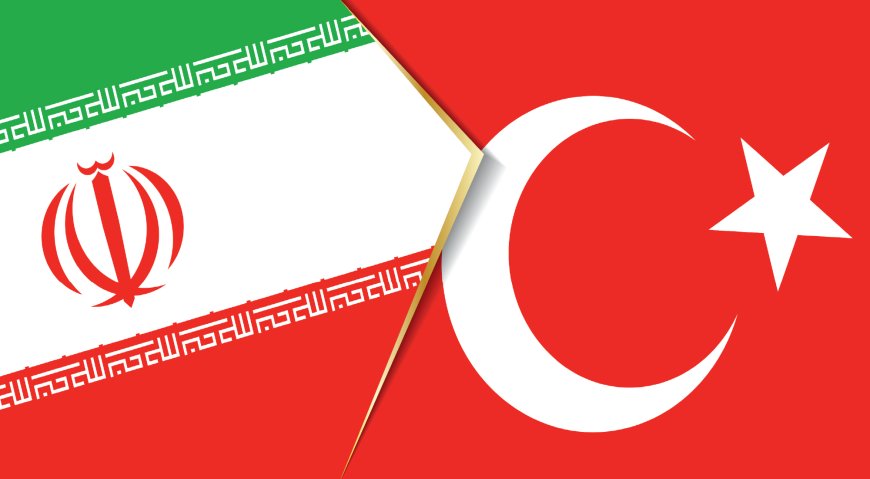The Iran-Turkey Nexus: Charting Syria’s Future Through Constructive Cooperation
The collapse of the Syrian government on December 8, coupled with the ascendance of the terrorist organization Hayat Tahrir al-Sham, has markedly recalibrated the regional balance of power by amplifying Turkey’s influence over Syria’s evolving dynamics. In this transformed landscape, the Erdogan administration now occupies a singular and strategically advantageous position to shape Syria’s future—an influence once predominantly exercised by Iran during the post-war reconstruction following the conflict with Takfiri terrorists.

By: M. Sharifi
The collapse of the Syrian government on December 8, coupled with the ascendance of the terrorist organization Hayat Tahrir al-Sham, has markedly recalibrated the regional balance of power by amplifying Turkey’s influence over Syria’s evolving dynamics. In this transformed landscape, the Erdogan administration now occupies a singular and strategically advantageous position to shape Syria’s future—an influence once predominantly exercised by Iran during the post-war reconstruction following the conflict with Takfiri terrorists.
This shifting paradigm naturally provokes inquiry into Iran’s prospective role and stature in the post-Assad era, particularly as Turkey’s vigorous engagement in Syrian affairs intensifies. With Turkey’s backing of Tahrir al-Sham—a group whose leader, Ahmad al-Shara, has been elected president of the transitional government—Ankara now wields significant leverage in Syria. This ascendancy underpins Turkey’s ambition to decisively mold the country’s political destiny through negotiations with a spectrum of regional and international stakeholders aimed at resolving the Syrian crisis. Such strategic maneuvering not only serves as a crucial lever in regional bargaining but also enables Turkey to pursue its national priorities in strict accordance with its interests.
Historically, Tehran and Ankara have found common ground on various geopolitical and political fronts, a convergence that now suggests the potential for even closer cooperation regarding Syria. Turkish Foreign Minister Hakan Fidan, reflecting on recent developments, characterized these changes as a fortuitous opportunity to deepen bilateral relations between Turkey and Iran. He underscored that the diminishing of previously entrenched differences on Syrian policy has transformed the issue from a point of contention into a platform for cooperative engagement, thereby creating an auspicious environment for enhanced inter-state ties.
The critical question then arises: in which spheres might Iran and Turkey collaborate? The Syrian issue is of such paramount importance to both nations that Turkish Intelligence Minister Ibrahim Kalin recently convened with his Iranian counterparts—Intelligence Minister Ismail Khatib and Secretary of the Supreme National Security Council Ali Akbar Ahmadian. This high-level dialogue indicates that Turkey seeks stability in Syria as a means to safeguard its interests and simultaneously manage the Kurdish challenge. Concurrently, Iran has declared its commitment to securing stability and ensuring the recognition of minority rights in Syria, resolutely opposing external interventions aimed at fragmenting the country for self-serving gains. Notably, both nations have also voiced their unified opposition to certain Israeli policies, which they argue exacerbate the risk of radicalism in the region.
Another salient facet of this prospective cooperation involves the mutual commitment to upholding the sanctity of holy sites—a priority that Iran is keen to advance in concert with Turkey. Additionally, Iran’s longstanding engagement with Lebanon via Syria remains a critical concern; this relationship, grounded in years of sustained contact and the enduring presence of Shiite communities in Lebanon, is envisioned not in terms of military alliances or arms transfers but as a cultural and political bond that Turkey might help to reinvigorate and fortify.
In summary, the trajectory of current events suggests that Iran and Turkey are actively pursuing the establishment of joint mechanisms to address the Syrian issue. Such collaboration would not only advance their respective national interests but also contribute significantly to regional stability and security. As two preeminent regional powers, Ankara and Tehran, through active diplomacy and constructive cooperation, are uniquely positioned to foster regional peace and catalyze sustainable development.













































